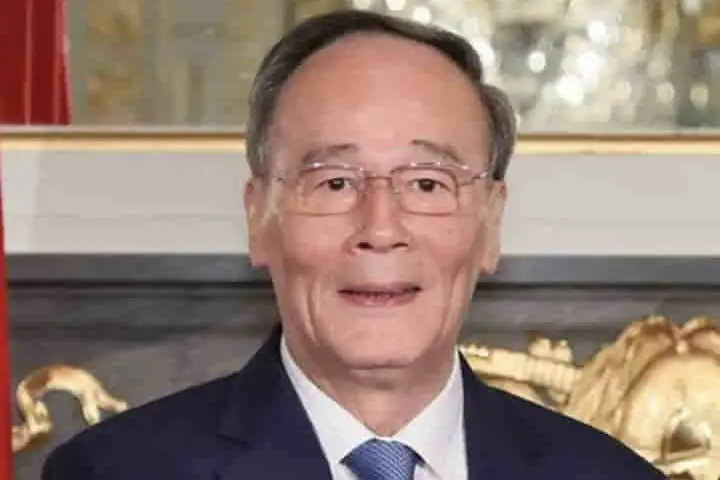Resentment to Chinese President Xi Jinping’s authoritarian style–a sharp U-turn from Deng Xiaoping’s era of greater openness and engagement–has triggered a bitter power struggle within the ranks of the Communist Party of China (CPC).
How are the battle lines drawn? Who are Xi’s most powerful opponents and how is the President taking them on?
Two key heavyweights have mounted a silent rebellion against Xi. The duo comprises one former and one serving Vice President. Wang Qishan, a top Xi ally not too long ago is the current Vice President who is opposing the CPC supremo. The other is Zeng Qinghong, a former Vice President. The two apex a powerful network of individuals who hold key positions in the country’s vast universe of financial services and private businesses. There is a third highly influential force which is trying to undermine Xi. This is the opposition that is embedded in China’s security establishment, and has escaped a massive purge that Xi had mounted soon after he assumed power in late 2012, under the garb of a massive anti-corruption campaign.
How is Xi addressing the challenge?
Without directly confronting Wang Qishan, Xi is severely and surgically cracking down on the Vice President’s core power base.
The first notable, close to Wang, to be hit in this campaign has been Ren Zhiqiang. Ren has been a princeling, which means that the scion of the first generation of Chinese leaders, who assumed power after Mao Zedong’s Long March succeeded and the People’s Republic of China (PRC) was born in 1949.
Late last year, the CPC frontally took on Ren, swooping on his social media posting in Sina Weibo, China’s equivalent of Twitter. Ren, who had millions of followers, had written on Wiebo about a certain “disrobed clown who insists on being the emperor”.
It was obvious that the “clown” referred to no one else but Xi. Hell broke loose after that. Ren, who was also a real estate Mogul was sentenced to eighteen years in jail for alleged corruption and embezzlement.
The next on the firing line was another Wang protégé, Chen Feng . Chen became close to Wang when he was party secretary of Hainan province. Chen is supposedly the hidden patron of several cash-cows, chiefly the HNA Group. This is a Hainan-based conglomerate, which morphed from a regional airline to an international heavyweight, all within a time-span of two decades.
The authorities went after Chen, when HNA had gone bankrupt earlier this year largely due to its inability to repay debts estimated at $77.3 billion. Chen was arrested in September for alleged economic crimes and anti-party activities.
The third Wang acolyte to be hit for this was Don Hong, a former official of the Central Commission for Discipline Inspection (CCDI) –the highest internal control institution of the CPC, which was headed by Wang during Xi’s first term in office that ended in 2017. Dong was arrested last April on charges of embezzlement and a “degenerate lifestyle”.
Dong, Wang’s right-hand man, headed a team that the CCDI set up in 2013 to probe wrongdoings in provincial and government bodies. In his incarceration order, he was accused of “seriously infringing upon political discipline and political regulation” as well as “being disloyal to the party.”
Apart from Wang, the Xi Jinping core has also struck at the heart of the network speared by Vice President Zeng Qinghong’s network—a key member of the Shanghai faction of the CPC, led by former leader Jiang Zemin.
Zeng was felled by a fearsome pincer. The first attack came through the targeting of Fantasia Holdings, a leading property developer in China. The company is headed by the former VP’s niece, Zeng Baobao. Recently, Fantasia has been downgraded to “default” status by rating agencies due to failure to pay interests on bonds and promissory notes. According to investigators, Fantasia has to pay liabilities equal to $7.5 billion, which have to be repaid within a year.
The second attack on Zeng came in the form of the exemplary fear- inducing targeting of Lai Xiaomin–a reputed banker who used to head the state-owned China Huarong Asset Management Company (CHAMC). Late last year, Lai was arrested late last year, He was executed this January, on grounds of bribery and for being “disloyal to the party.” Yet the relationship between Zeng and Lai goes back a long way, evident from the fact that Zeng Baobao’s Fantasia Group Holdings was also a business partner of CHAMC.
Xi is also confronting a major challenge from the political-legal (zhengfa) apparatus, many of whose influencers are still loyal to the President’s arch-foe. Zhou, a former member of the powerful standing committee of the Politburo of the CPC, as China’s security Czar, before Xi stepped into leadership position. After Xi’s arrival, Zhou was sentenced to lifetime imprisonment in 2015.
Xi has cracked down hard on the zhengfa system. Three vice ministers of the public security bureau–Li Dongsheng, Meng Hongwei and Wang Like have been arrested on economic and disciplinary violations. On October 2, the CCDI announced that former executive Vice Minister of Public Security Fu Zhenhua was being investigated for similar violations.
The crackdowns are expected to intensify ahead of the 2022, once in five years 20 th Party Congress, where Xi is expected to further tighten his grip on the system. The near-bankruptcy of Evergrande Group, one of the largest real-estate conglomerates in the world, may be the tip of the iceberg as many bubbles may burst in the future. China’s total national debt reached 335 percent of GDP at the end of last year. External debt has breached the $2.68 trillion mark.
Also read: Evergrande boss Xu Jiayin's journey–a fascinating rags to riches story




















